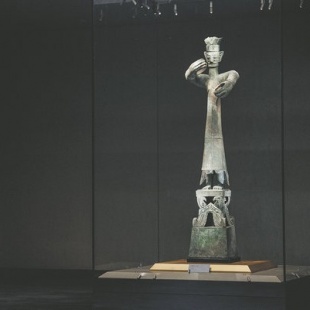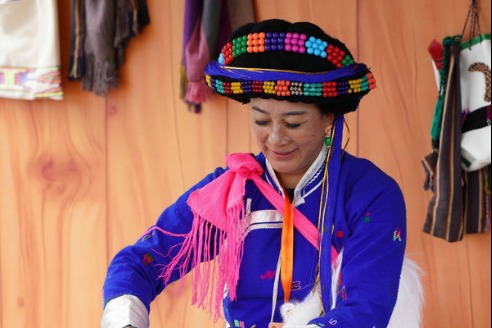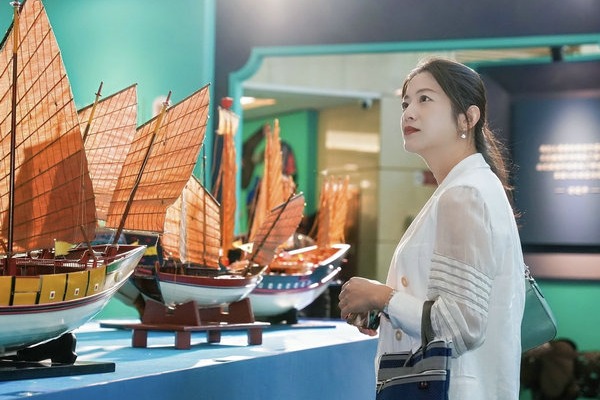A gripping mystery
One of the biggest questions that still confounds Sanxingdui experts is: What did the bronze standing man once hold in his hands? Zhao Xu feels around for answers.


What was the man holding? This is an inevitable question for anyone who has ever looked up to the famous bronze standing man, unearthed from a pit in Sanxingdui, an archaeological site located in Guanghan city, southwestern China's Sichuan province. During its heyday between 1600 and 1100 BC, Sanxingdui was capital to the ancient kingdom of Shu- Shu being a modern byword for Sichuan- which built around itself a prosperous Bronze Age civilization that dominated the Upper Yangtze River region.
One of Sanxingdui's most identifiable images, the statue, standing 2.6 meters tall, pedestal included, is also one of its biggest puzzles. Researchers have long suggested that the man's stature demonstrates his elevated status, probably as a king or chief priest, or both. Others believe that it may have once been placed on an altar and worshipped by the awestruck people of Sanxingdui.
People argue over just about every aspect of him, from his identity and dragon-patterned clothing, to his majestic headpiece and the pedestal, adorned with images of mythical beasts, upon which he proudly stands. Yet nothing has aroused more interest than his gestures. With arms raised in midair and fingers of both hands circled to form a hole in the middle, the man had almost certainly been holding something, something that is likely to have been lost, or has disintegrated over the course of millennia.
But what was it?





































